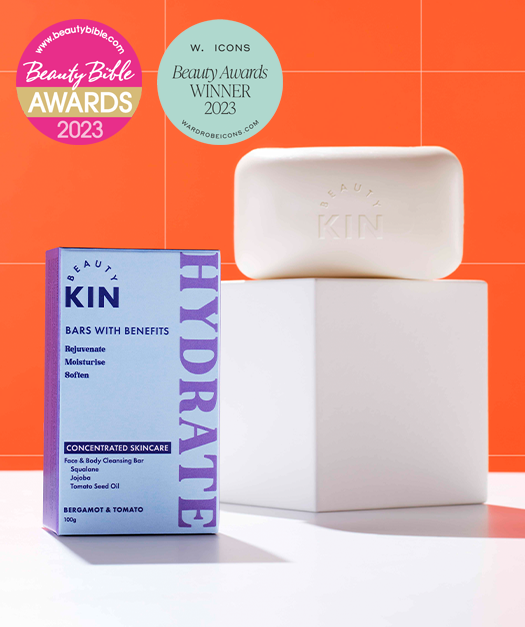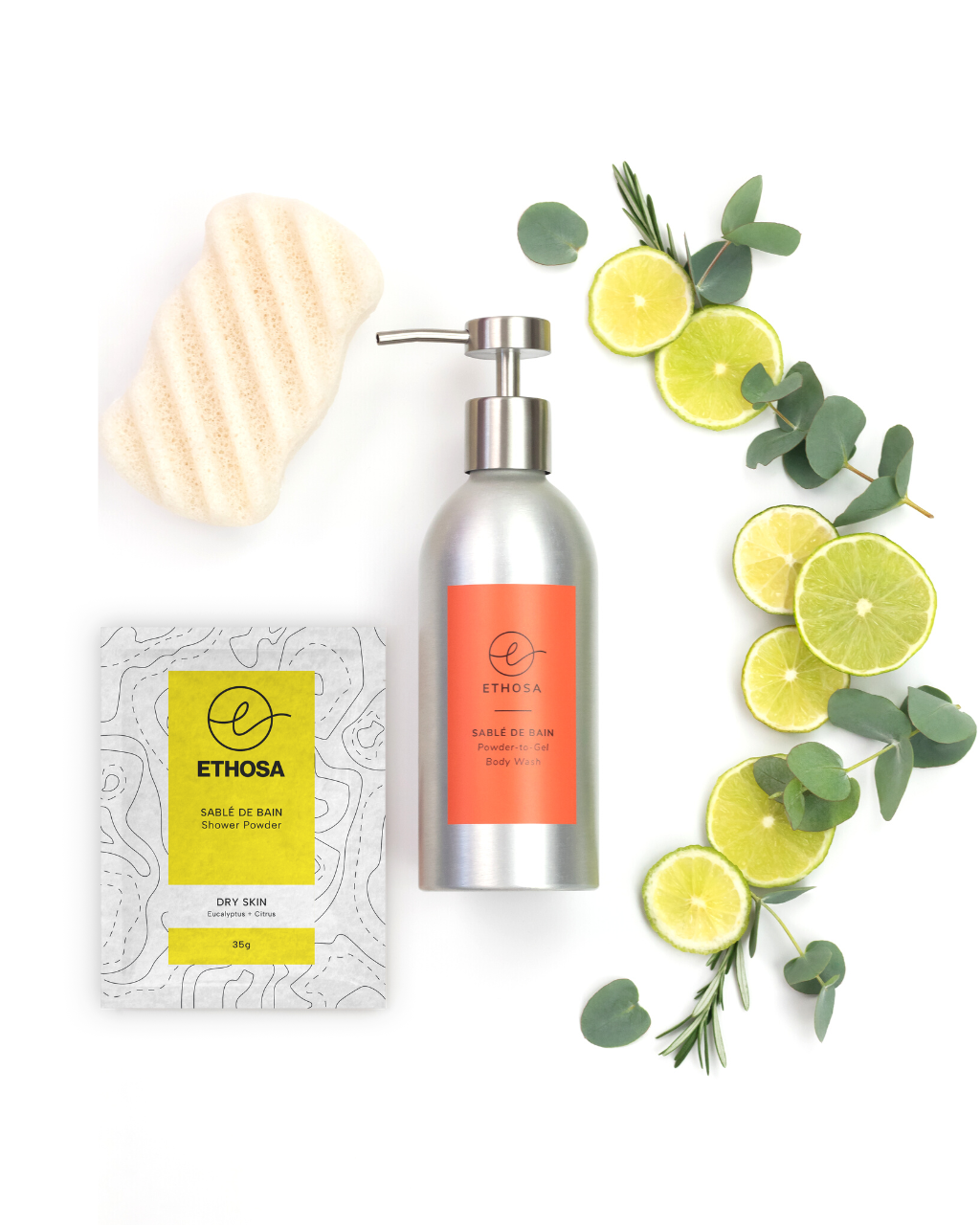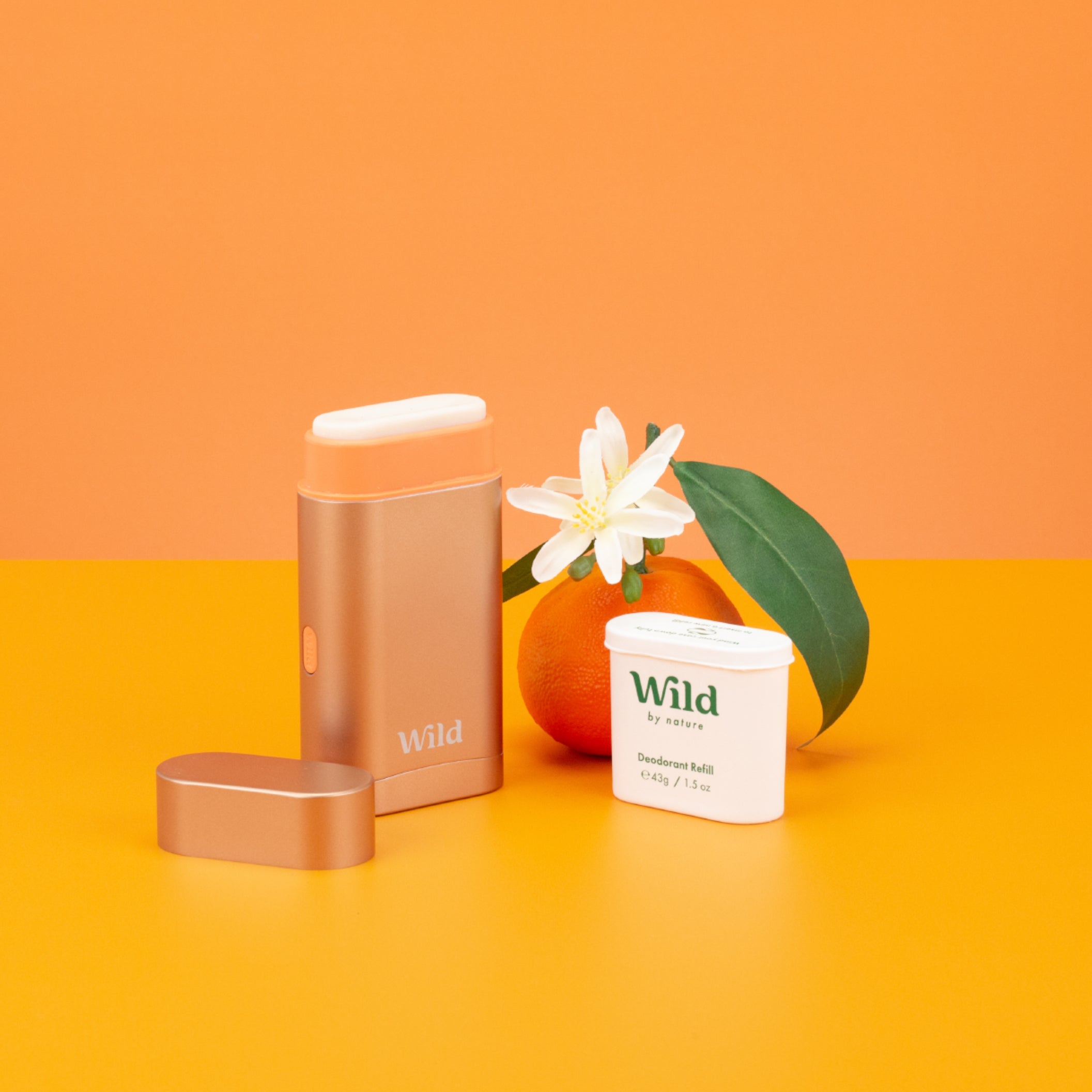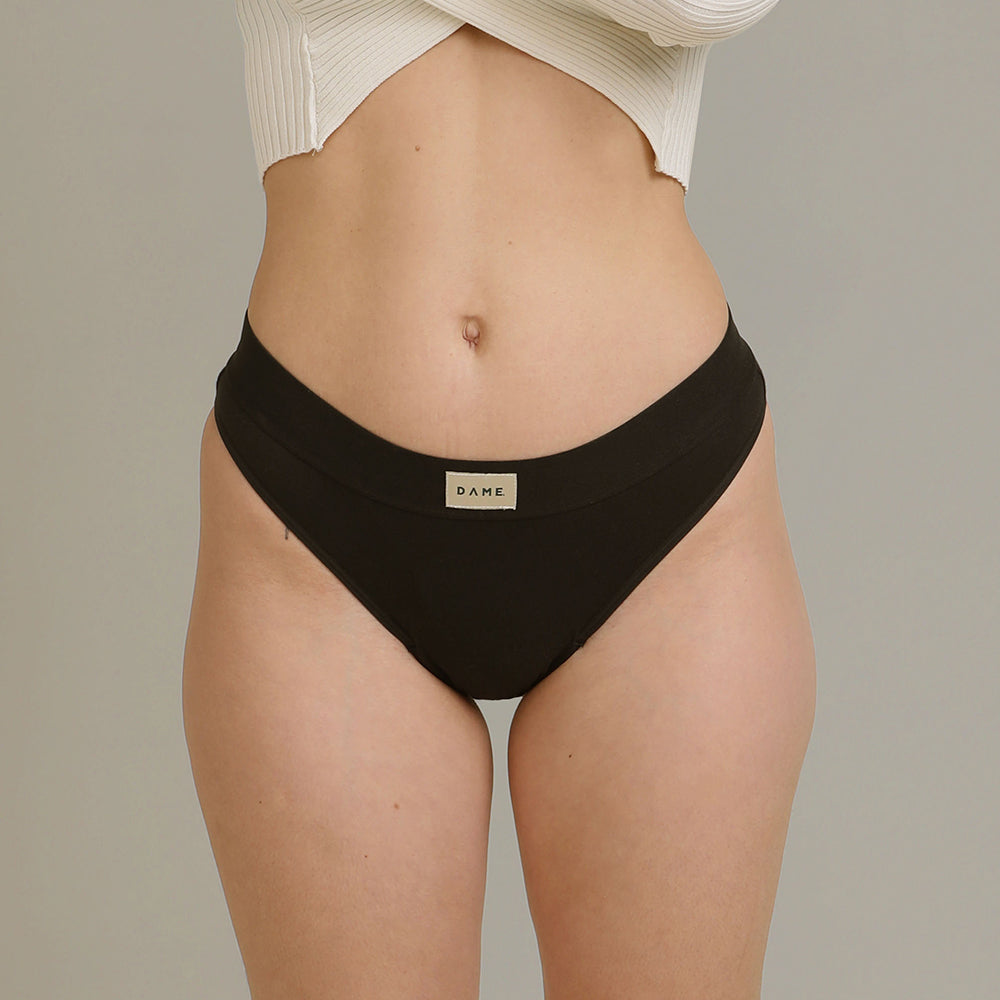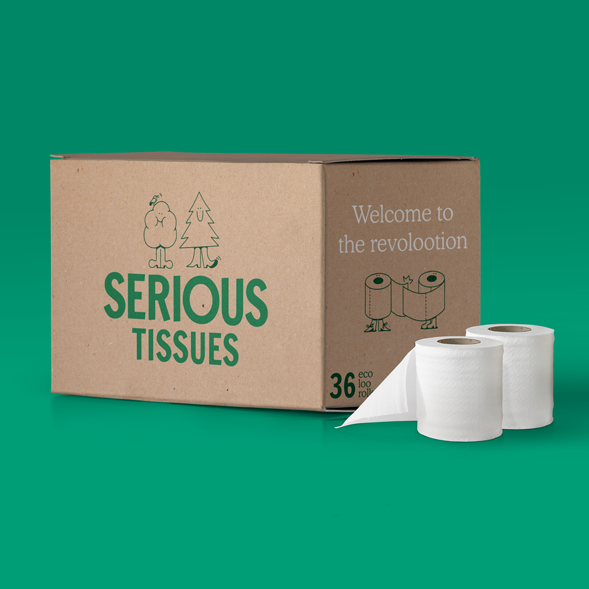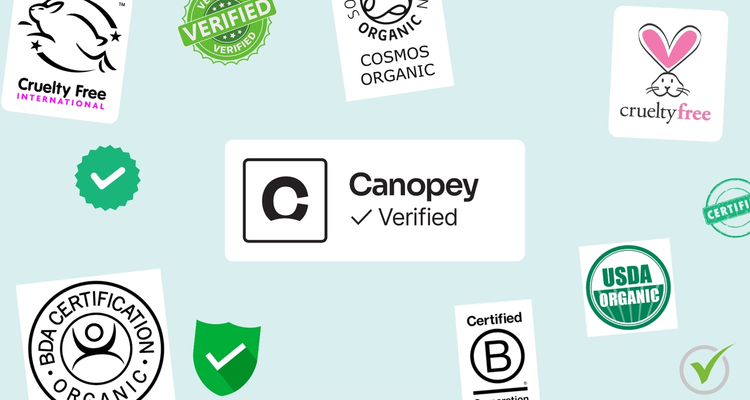
Introducing The Canopey Kitemark & How We Verify Brands
By Thomas Panton
Did you know 83% of people would be more likely to trust a product’s sustainability claim if it had been verified by a third party?
The research from Compare Ethics shows that consumers are far more likely to believe in a brand if it makes sure that its own claims are being double checked by a reputable third party. And there isn’t a shortage of third party accreditations out there!
So why is nearly half the population finding it too complicated to shop sustainably? Why is Greenwashing still rife? And what can we as a company and a community do about it?
To continue in our mission in making the ethical consumer industry streamlined, convenient and accessible, we’re proud to be releasing the Canopey Kitemark which brings together a fragmented industry under one ‘canopy’ for the very first time.
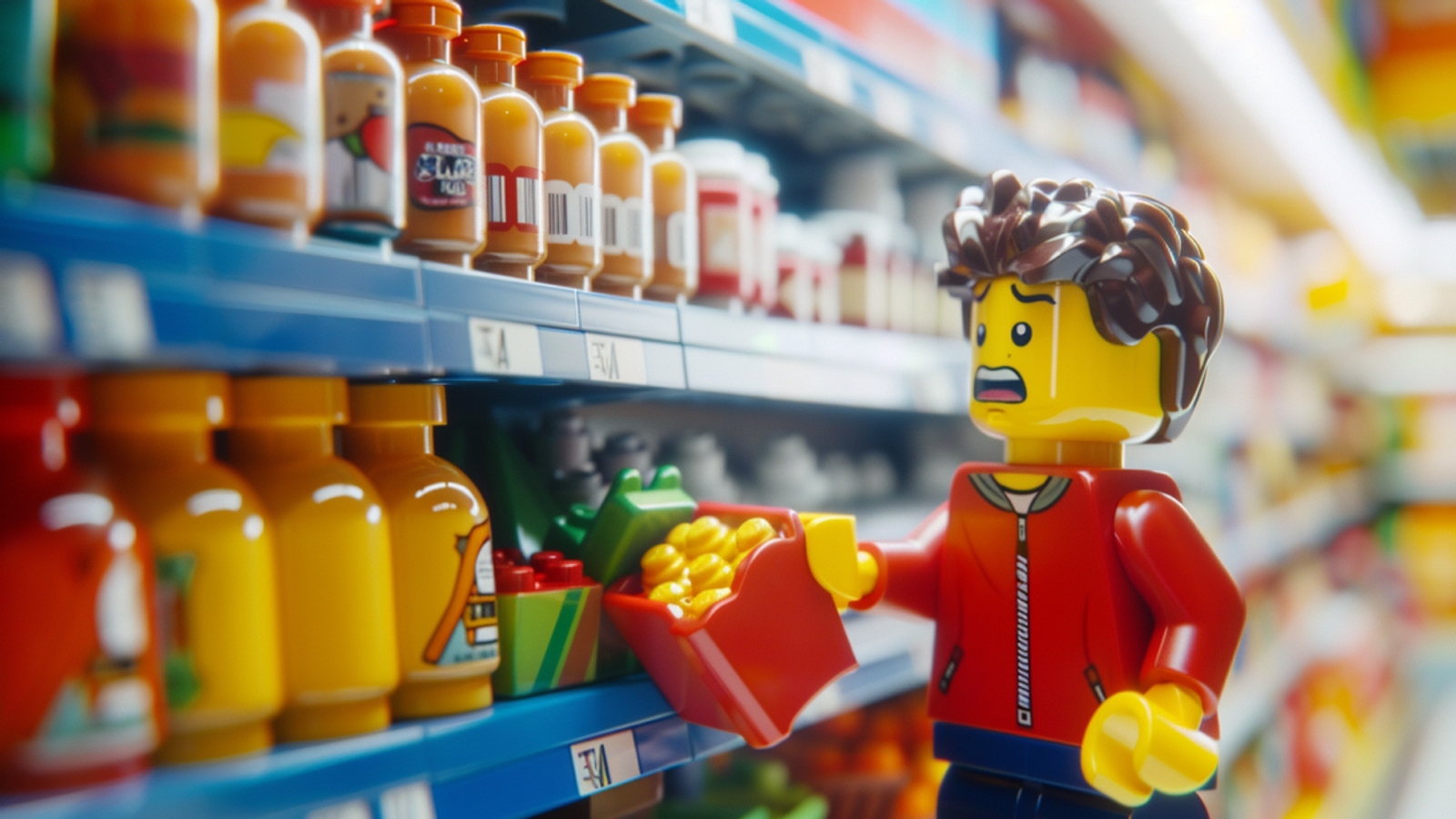
The Current State Of The Industry
Simply put: the ethical consumer industry fragmented and complicated, and often sector specific.
This makes it incredibly difficult for individuals to trust that claims are legitimate, and for brands to not get their verified claims diluted by pesky greenwashers.
And the data backs this up. London Research released a report that showed 79% of beauty and wellness shoppers have difficulty trusting brands’ sustainability claims; not surprising, given that the Competition and Markets Authority (CMA), one of the main bodies for double checking marketing claims in the UK, found that 40% of environmental claims could be misleading.
Further to this big brands are now pushing into the market, with brands like Amazon releasing their Climate Pledge badge for companies that fit into their criteria.
The problem for consumers, the market – and the planet – is that many of these marks aren’t exactly fit for purpose. Amazon’s Climate Pledge badge itself verified brands such as Dove, and lists products like single-use batteries, wet wipes, and plastic bottles of petroleum-based moisturiser. Not exactly the kind of things you think about when you think of shining examples of sustainability and ethics.
This is why the CMA has responded in recent years with new regulation. TheGreen Claims Code, released in 2021, clamps down on these misleading claims.
Importantly, they have also started investigations into companies like Unilever that have been found to deliberately misleading consumers.
Out of the foundations of regulations like these, organisations have started popping up to help companies relay their claims effectively and compliantly with new certifications and accreditation marks.
Ideally, these would make it easier for consumers to decipher the complicated world of green claims and terminology – but is this really the case? Let’s get into it.

Sustainability ‘Umbrella Marks’: Provenance, Ethy, and Compare Ethics
It’s not surprising that companies have been rushing to try and bridge the gap between consumers and green claims confusion.
The demand for ethical brands and greener products has skyrocketed over the last 20 years, growing four times faster than the mainstream consumer industry and a whopping 1000% overall. It’s left a market worth more than £10bn for sustainable consumer packaged goods. That’s in the UK alone.
Companies such as Ethy, Compare Ethics, and Provenance, have been pushing ahead to try and offer brands a way to bring their different green claims under one canopy, whilst allowing consumers to see which brands and products have been checked and also help them find them to begin with.
But a young market brings challenges for young disruptors. For brands, getting accredited is yet another cost for them to consider, and there’s a market of over 455 different certifications, green claims regulation, and marketing mishaps out there.
For consumers, this might work if you’re looking for the brand directly on their own sites, but if you’re just starting out on a journey, no one wants to open hundreds of different websites and tabs in the hope that they can find the product that really fits their wants or needs.
Another problem with some of these umbrella marks is that they are often specific to certain industries. It means that one mark for organic will only ever be shown on clothing, while a completely different organic mark gets shown on food and drink products.
As a shopper, it’s a minefield of icons and new information each time you browse.
But one of the biggest problems is some of these umbrella marks don’t check every single claim or require evidence. Often they simply accept ‘statements of confirmation’ from brands, allowing them to ‘self-verify’.
If brands are able to self verify by simply providing a letter of confirmation, and claims aren’t being double checked against primary evidence, then this undermines the whole idea of these umbrella marks – they’re not verifying or checking things as you might think.
This isn’t to say there isn’t a place for umbrella marks. They can be more accessible for shoppers looking at specific products, and for brands there’s a sense of relief that they can proudly state their claims with their third party verifications. But only if this is done properly and fully.
Why Canopey Is The ‘Mark Of Marks’
One of the biggest ways Canopey distinguishes itself from other platforms and marketplaces such as Veo, Ethical Superstore, Social Supermarket, Avocado store, and others, is by doing more than offering a shop for consumers and a shopfront for its brands.
Our whole mission is to bring the fragmented consumer market under one canopy.
One part of that offering is that we verify the ethical and green claims of businesses and their products before they join the Canopey marketplace platform. This is uniquely different from every other marketplace as we won’t show a claim unless it's got primary evidence from the brand or a third party certification behind it.
For consumers this is a relief, it means that Canopey is checking everything, not just some things. It also means that we can position ourselves as more thorough, more defensible, and less risky than other platforms for our investors and the future of Canopey’s ethical canopy.
For brands, we always felt that selling on Canopey could benefit them in other ways. The Canopey Kitemark was a natural answer.
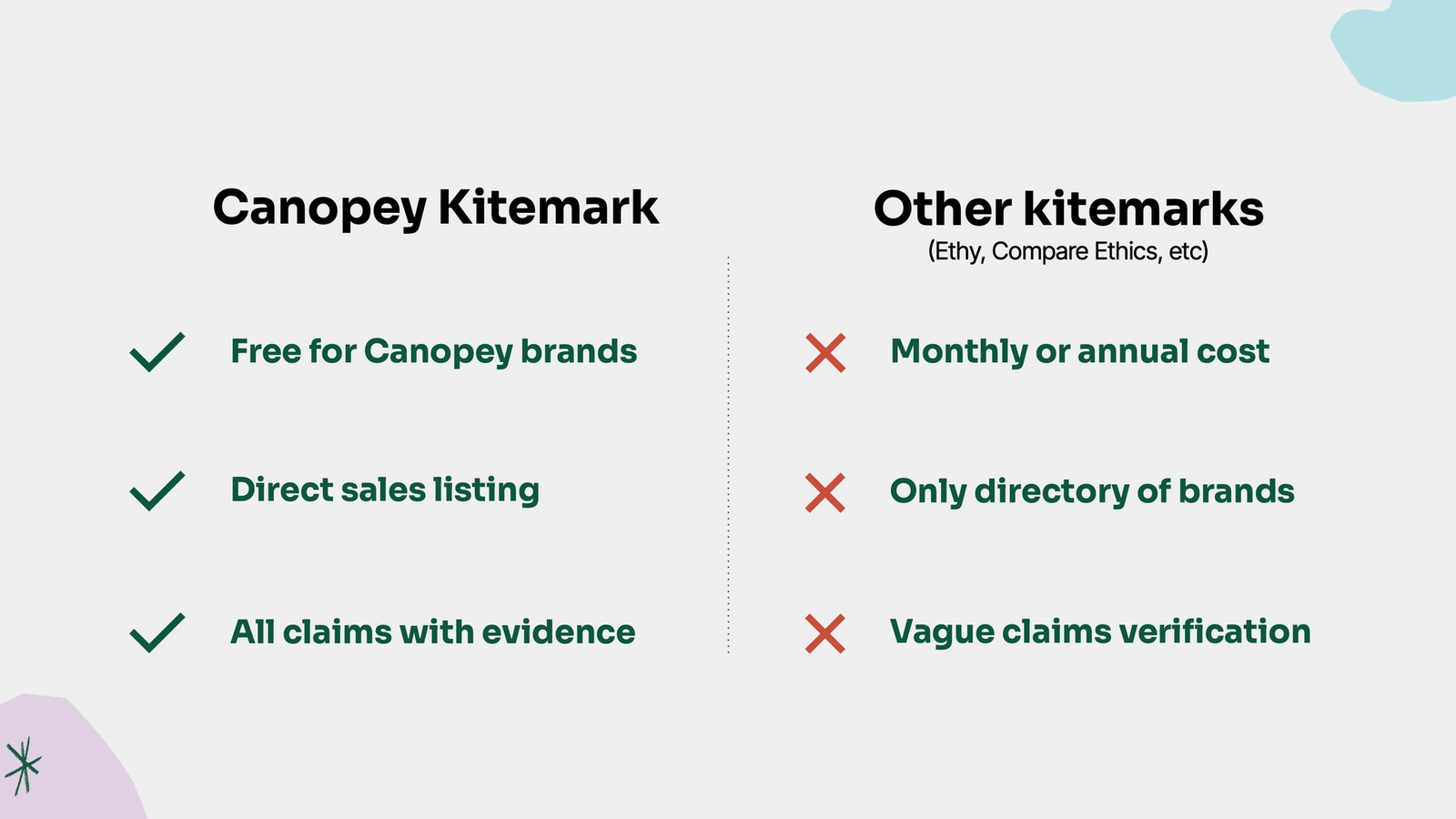
Not only are we more rigorous than many of the other umbrella marks, by checking every single claim and requiring evidence, but also we’re helping the brands we work with demonstrate their sustainability credentials to customers:
- They get to list on a marketplace where they will never be shown alongside a brand that hasn’t had its green claims verified. This is hugely beneficial to them as they won’t feel the bitterness of losing out on sales to a brand which hasn’t had claims checked over.
- They get to show off their Canopey Kitemark on their own websites and in marketing, bringing that sought after third-party trust to their customers – and for free.
So not only is the work done more rigorously, but also they get the third party verification without the hefty price tag.
Just a few of our brilliant, better brands proudly sporting the Canopey Kitemark include Ocean Bottle, ETHOSA, Beauty Kin, Wild, DAME and Serious Tissues, along with many others! Check out our full brands page to discover more.

What Does The Future Hold For Umbrella Marks?
I think the future of umbrella marks is bright. With tighter regulations, more consumer demand, and the ever growing supply of ethical brands, there’s a natural market for ones which make it easier for everyone – from shoppers to brands and suppliers.
They can make it easier to relay claims, build trust, and in turn help supercharge the growth of green industries.
However, there’s still a lot of work to be done by the current players in the space.
We hope that the Canopey Kitemark can set the standard as a ‘canopy’ of other certifications and marks. Every single claim, checked and verified using primary evidence, before we apply our accreditations. No more simple statements of confirmation – and no more greenwashing.
Make sure to look out for the Canopey Kitemark on our brands’ websites, and of course, please do enjoy your time under the Canopey: The Home for Buying Better®.





